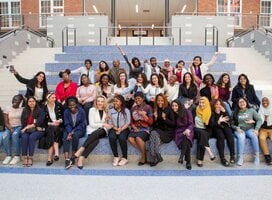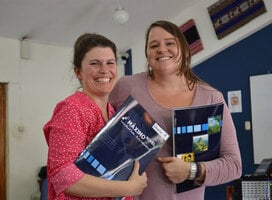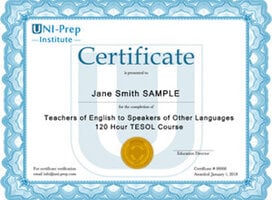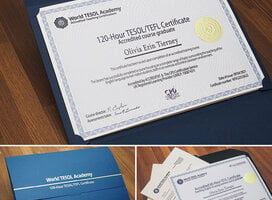Teach English in Georgia
You walk up the flight of stairs leading to the teacher’s room, dodging young students running, screaming “hello” as they zip by, answering the warm “how are you?” as you pass by your older students on the staircase, and attempt a casual “hello” in another language to a passing parent dropping off one of your youngest students.
You finally make it to the teacher’s room where you are welcomed with a hearty “good morning” by your fellow teachers as you enter. The bell rings and your mind drifts to the lesson plan you and your co-teacher created to fight this manic Monday: reviewing the new dialogue, words and organized game.
You hope the students finished their homework and retained the information from the last lesson, then your co-teacher prompts you with the question, “you ready?”...Welcome to Georgia; the country, not the state. Sound interesting? Something you might want to do? Let’s go over the basics then, shall we?
Volunteer English Teach with Teach and Learn with Georgia (TLG):
A government-funded program that includes working alongside a local English teacher in the classroom of a village public school for a maximum of 30 hours a week, Monday-Friday, for about 3-9 months.
This program hires Associate degree or Bachelor degree holding individuals who are enthusiastic to teach English and be immersed in a new culture. They typically hire in Autumn and are now accepting applications for the beginning of the upcoming school year (Septstrongber 2013). Find information directly on TLG’s website or through a recruitment website such as Teach Away Inc., Greenheart, Footprints or Reach to Teach, and, of course, Go Overseas.
Peace Corps:
Basically the same outline of TLG, but with a longer commitment (2 years) in a village public school, with a minimum of 18 hours in the classroom. The individual will need experience in the classroom, up to 3 months or 30 hours and a Bachelor’s degree (preferably in English) to be a competitive candidate.
The application process takes nearly 9 months if the individual makes it through the different rounds and is given an invitation. Also, Peace Corps has the ability to place volunteers anywhere; so even if you wish to be placed in Georgia, the outcome is likely to be somewhere else.
International and Private Schools:
These schools vary with teaching hours and peak hiring times. Here are a few specific schools:
- QSI International School of Tbilisi: This school teaches only elstrongentary students and the requirstrongents include certification or teaching experience in an American curriculum. The peak hiring times are during the January and February months.
- Queen’s English (the British-Georgian center of English Learning Courses): This center focuses on the Callan Method of teaching and hires individuals qualified to teach English and have experience in a classroom. The working hours vary but usually include weekends and some holidays. The deadline for applications is in late March.
- Working for a University: This includes, for example, Tbilisi State University or Shota Rustaveli State University. These positions vary with teaching hours and hiring times, but the individual must have a Master’s degree in English and teaching experience within a university setting.
Private Lessons:
Hours and hiring times vary greatly in that this option requires on-site, in-country connections that usually come from already having previous teaching experience in the area. The only qualifications includes being a native speaker of English and having the ability to network as an English tutor.
Where and When to Look for Jobs:
The most popular location for a teaching job, outside of the realm of programs automatically placing you, can be found within the capital of Georgia, Tbilisi, and the Black Sea resort city of Batumi. Tbilisi is a bustling city situated on the Kura River, and Batumi, commonly referred to Georgia’s second capital, is situated directly on the Black Sea.
Both Tbilisi and Batumi are the prominent locations for International and Private schools that are willing to hire, usually before the school semester begins, either in August, September and sometimes January or February. These jobs can be found online on Go Overseas or networking through Facebook groups (Georgian Wanderers).
Qualifications:
The minimum requirements to teach varies greatly upon the program or school you hope to teach in. Most programs funded or associated with Georgia require the minimum of a Bachelor’s degree and teaching experience to be a competitive candidate, while International and Private schools require a minimum of a Bachelor’s degree, accreditation as a teacher, a TEFL, CELTA or TESOL Certificate and, usually, prior teaching experience. Universities require a Master’s degree and prior experience.
Salary & Cost of Living:
Salary depends greatly upon your program or teaching position. Within a program like TLG or Peace Corps, a volunteer can expect to earn $180-$300 per month and be provided with housing through a host family. With these programs, however, a fee is given to the host family ranging from $120-$150 per month. With TLG, this fee is allotted in the salary.
The Peace Corps housing fee ranges between $130-$150, which is due during Summer and Winter seasons. These programs also include all expense paid round trip tickets to and from Georgia. Housing can be found usually through help from the school, on the Internet or through networking sites previously mentioned.
Also, to add to these salaries, private lessons can be held, which range between $10-$30 a lesson per student. Rent averages between $500-$1,000, utilities totals between $70-$150, groceries total between $50-$100, transport between $10-$20, and cell phone between $10-$15.
Classroom & Work Culture:
- Student-teacher relations: The relationship between teacher and student fluctuates greatly between authoritative figure and family member. On the one hand, there is pretty serious punishment in schools in that teachers physically harm or verbally abuse students who show bad behavior during class. On the other hand, teachers tend to turn the other cheek to openly cheating on tests or homework due to a bond which resembles that of a family member and a sense of easing the students workload.
- Dress code: work wear differs greatly between village and city schools. Within a village school your typical outfit resembles business causal, usually pants with a nice shirt for both men and women. Some schools don’t allow women to wear pants, however, and the dress code enforces skirts or dresses. A city school tends to dress more on the upscale end of business casual, dress slacks and a nice shirt for men and women, even tending towards dresses only for women. The main color scheme is black.
- Greetings: Personal space goes out the window; the casual “hello” with friends, co-workers and students is most commonly done with a handshake and a kiss on the cheek, usually the right hand and right cheek. Don’t aim for the left... it could end in an awkward situation.
Relocating to a different country can be scary and stressful but in the end, it will likely be an immensely rewarding experience. Georgia is quite a unique place to teach, and with the various opportunities for work, you are sure to find something that tickles your fancy!














